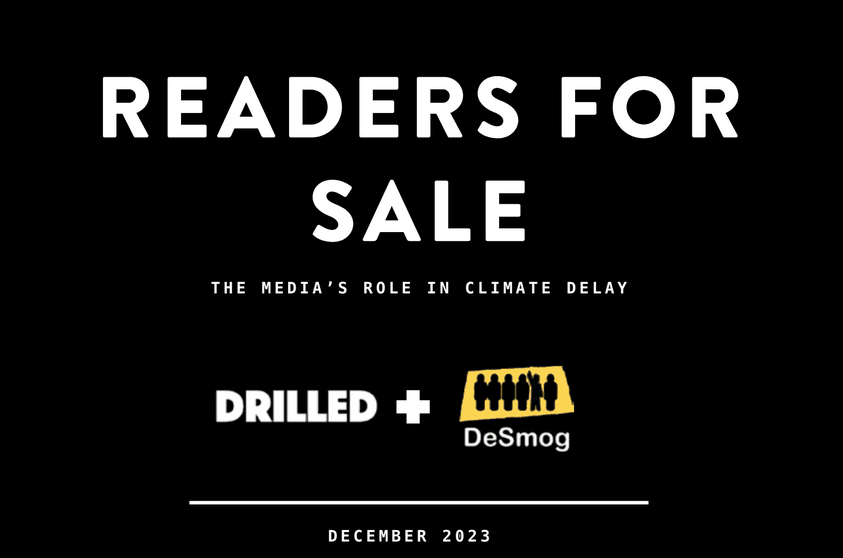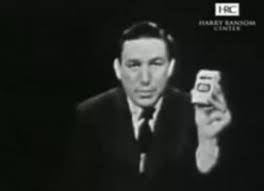As a couple of billionaires (or one billionaire and one pretender) run roughshod over legal standards and democratic norms, it reinforces the suspicion that economic elites get the policies that they want at the expense of the public interest. Folk wisdom says that he who pays the piper calls the tune. But as I show in Climate of Contempt, social scientists have struggled to find empirical support for that idea in politics. And the related proposition — that the United States would have stronger national climate legislation by now but for corporations’ control of the policymaking process — is also dubious.
Just about everyone condemns instances of actual political payoffs and corruption, such as the First Energy scandal in Ohio, or the spread of climate disinformation by the Heartland Institute,or Elon Musk’s efforts to gut agencies that are investigating his companies. But the natural outrage that that kind of behavior provokes sometimes leads people to infer that corruption is the norm in politics. It isn’t.
Blaming “corporations” takes people’s eyes off the prize. They focus less on stabilizing and reducing atmospheric carbon, and instead on vanquishing enemy industries or companies, or expelling them from participation in a net zero energy future.
Public discussion of oil company advertising and lobbying sometimes falls into this trap. In some social media and academic communities it is assumed that the goals of utilities and oil companies are almost always contrary to the public interest. And once you are convinced that an adversary is guided only by nefarious motives, everything that actor does can look condemnable. In that environment we can lose sight of what is truly deceitful or corrupt, on the one hand, and what is mere advocacy, advertising or lobbying, on the other.
Two websites that feed this particular contempt narrative are Amy Westervelt’s Drilled and the DeSmog Blog, both of which focus on the petroleum industry as a political bad actor. Both sites invite readers to feel contempt for oil industry, sometimes by casting innocuous behavior (as well as bad behavior) as blameworthy. A good example is their 2023 report on the industry’s relationship with news outlets, “Readers for Sale.”
That report documents the oil industry’s longstanding use of “advertorials” to try to influence public opinion about political issues, a practice that apparently continues today. I have mentioned advertorials in a previous post. They are the ads dressed up as news articles that one sees all the time on the CNN web site or the pages of the New York Times. They are usually marked as ads or “sponsored content,” but often in relatively small print, and too often without indicating up front who sponsor is. So readers skimming the headline will not learn the identity of the sponsor. And according to some studies, many people do not recognize them as ads at all.
Therefore, these arrangements between media outlets and the sponsors deserve some scorn because they are apparently deceiving some readers. So kudos to Drilled/DeSmog for providing a primer on this practice, and examples. Their report is worth reading in full for that reason.
But like an advertorial, that report can also mislead those who don’t read it, or who read it uncritically. The report opens with a description of how a Mobil Oil VP “invented” the advertorial in the 1970s,* suggesting that thereafter the practice became so commonplace that “[t]oday, almost every major media outlet offers space for corporations to run advertorials … [and] a creative team ready to write those advertorials, and create graphics, videos, and podcasts to go with it.”
Well, not exactly. In fact, a close reading of the full report reveals the various exaggerations in the report’s own summary statement. But more importantly, the report lumps together several different types of actions: (i) publishing advertorials, (ii) selling ads and advertising services, and (iii) sponsoring events. And it is a mistake to paint these three types of actions with the same broad condemnatory brush. They are different types of commercial relationships, each with its own ethical dimensions. And their differences are best illustrated using the report’s own examples from two media companies: Bloomberg News and The Economist.
The report takes Bloomberg to task for a accepting “more than $2 million in ad revenue from fossil fuel companies,” and for Michael Boomberg’s remarks at its “Qatar Economic Forum 2024,” which included positive statements about liquified natural gas and Qatar’s geopolitical significance. The report does not seem to allege any deception on the part of Michael Bloomberg or his company, but rather hypocrisy for promoting both LNG and carbon capture in ways that “contradict[] the findings of Bloomberg’s excellent roster of climate reporters.”
To support the hypocrisy allegation the report cites a November 2023 Bloomberg story on the Energy Transitions Commission, a group of corporate leaders who are doubtful about the future viability of carbon sequestration. Thus, Drilled/DeSmog ascribes to Bloomberg reporters the positions of the people who were the subjects of a Bloomberg article. Given that leap, the imputation of hypocrisy to the organization is easy. But it is misplaced, unless one assumes that those corporate leaders’ beliefs about the future will prove correct, and that Bloomberg reporters also believe those same things. Sloppy.
When it comes to accepting oil company ad revenue, the report doesn’t seem to charge Bloomberg with running advertorials — only with selling a lot of ads to oil companies. Presumably these are the sort of clearly marked ads that Bloomberg and most media outlets run for other sponsors. The authors of “Readers for Sale” do not state whether they believe that all sales of ad space to companies influences reporters’ coverage of those companies, but the implication is that the authors’ would make that inference with respect to oil companies. Of course, in the cash-strapped world of news reporting, ad revenues are an unavoidable necessity. Indeed, in the online world where consumers expect free content, ads are THE revenue model. And presumably modern consumers are more savvy consumers of advertising (not disguised as news) than previous generations were.
The report also takes both Bloomberg and The Economist to task for accepting oil company sponsorship for educational events that carry the media companies’ brand. That sort of sponsorship of an event, service or research is deceptive if the sponsorship is not disclosed. And it gives rise the the possibility that the the funder is influencing or driving the event content. For that reason, some people or organizations decline outside sponsorship in order to avoid the problem altogether. But of course, that sort of funder contamination is a possibility, not an inevitability. Some organizations or researchers may bend over backwards to avoid letting sponsorship skew their work, and err in the opposite direction.** Others may be influenced subconsciously in the direction of the funder. Many choose to disclose sponsorship and leave it to the reader to decide whether the event or research has been contaminated by the funder’s support.
The sponsored events run by The Economist (and cited in the report) were a Shell-sponsored event on the future of education, a BP-sponsored event called “Sustainability Week,” and a Chevron- and ExxonMobil-sponsored “summit” on sustainability. Readers should go to the Drilled/DeSmog report (linked above) and click the links to those cited examples. Decide for yourself if (a) there is any deception about sponsorship, or (b) whether the event seems to have been influenced by the presence of oil industry sponsors. (To my eye the latter two look like attempts by business leaders to promote conversation about sustainability; and the first one seems to be about education, not energy policy. But look for yourself.)
Some industry groups try to influence academic research through sponsorship; other times the industry’s sponsorship of research is aimed at solving an environmental problem. Recently Stanford University convened a select committee to review the oil industry sponsorship of research activities at Stanford’s new Doerr School of Sustainability. The committee issued a report recommending the addition of more “guardrails” to Stanford’s industry-funded research, but against “dissociating” from industry by banning such support. Seeing “mutual benefit” in those arrangements, the committee went further and questioned whether “dissociation based on companies’ climate transition pathways could be consistent with … Stanford’s [academic freedom policies],” … and “the University’s capacity to determine whether a company has obstructed climate policies in a manner that would justify dissociation.”
The Stanford report disappointed critics who equate sponsorship with contamination. A recent paper in a journal called WIREs argues that “universities are an established yet under-researched vehicle of climate obstruction by the fossil fuel industry.” As evidence for that conclusion the authors cite evidence of extensive financial and human connections between the industry and university research, but much less evidence demonstrating systematic bias. Still, the inference that researchers will be reluctant to bite the hand that feeds them is attractive because it is intuitive. And it would have been understandable had Stanford decided to avoid the appearance of impropriety by banning such support.
But the notion that sponsorship inevitably contaminates results is too neat, as evidenced by the fact that this issue has divided environmental NGOs for decades. The Environmental Defense Fund, for example, has cooperated with industry to study environmental problems, reasoning that it can get better data and build better studies with firms’ inside knowledge. EDF has produced a body of research on methane leakage from oil and gas operations that has proven extremely important and useful, much of it undertaken with the industry’s cooperation. In my view, it would be difficult to review EDF’s body of work in this field and call it “greenwashing,” but each reader can make their own decision about that. The same could be said for the work of the Princeton Net Zero America project and other groups who advocate for the environment but accept industry funding.
Too often complaints about industry contamination of research or reporting are tautologies, based on the assumption (as opposed to the demonstration) of bias. Rejecting industry sponsorship is a good way to avoid those suspicions, but accepting sponsorship does not confirm them. Rather, it takes investigation to demonstrate bias. And it is misleading to portray the “old energy” industries as only and always working against the public interest. It just isn’t that simple. So don’t let ad hominem arguments cheat you out of a fuller understanding of the messy complexity and unavoidable moral ambiguity of the energy transition. — David Spence
——-
*Most sources place the invention of advertorials much earlier. The use of television newspeople to advertise products was common in the 1950s. However, that practice was discontinued among network major news divisions because it allowed sponsors to capitalize upon reporters’ reputations for credibitlity and objectivity, which is the very problem the Drilled/DeSmog report raises. This sort of host advertising remains a common feature of podcasts that already have a clear ideological bent. Right wing podcasters like Charlie Kirk and Alex Jones hawk survivalist gear to their conspiracy-interested audiences. Likewise, the progressive hosts of Pod Save America endorse their sponsors’ products during the episodes — things like meal kits, bespoke tailored clothing and home security systems. Presumably that sort of thing is less misleading when the podcaster isn’t a trained journalist.
**I recall a statement I heard decades ago from an attorney whose firm was disqualified by professional responsibility rules from representing any of about 100 parties to complex litigation that involved allocating financial responsibility for cleaning up an old landfill. (Several of those 100 companies were the firm’s clients, and representation of any one would create an “appearance of impropriety” or conflict of interest.) The attorney said, perhaps facetiously, “We can’t violate that ethical rule. But these companies could never get better representation that two of our attorneys competing against one another.”



